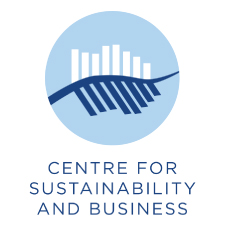NAB expands climate training with Melbourne Business School
One of Australia's biggest banks will introduce climate training for all its bankers.

NAB has been working with the Centre for Sustainability and Business to improve the climate capabilities of key bankers for the past two years. Now, it is developing a bank-wide training program to increase climate capability in support of its Climate Growth Strategy.
"This is an exciting step that supports our 'whole of bank' approach to the climate transition and it will allow all NAB colleagues to access relevant, science-based climate training at work," said NAB Chief Climate Officer Jacqueline Fox.
The new program will build on the successful delivery of climate risk and adaptation training to 350 NAB Agribusiness bankers last year, as well as the training of around 100 Corporate and Institutional bankers throughout 2021 and 2022.
The broader training program will provide a foundational level of understanding on climate change and NAB's response, for all of NAB's bankers, as well as more targeted, sector-specific training modules for bankers supporting customers in key sectors.
Professor Glenn Hoetker, Director of the Centre for Sustainability and Business, said the program was being developed and delivered in close collaboration with the bank to make sure it was relevant to the needs and roles of different bankers.
"Our co-design and co-delivery model ensures that NAB bankers are learning from credible, highly regarded climate experts and educators at Melbourne Business School and getting the climate science translated into their commercial context, so they can confidently apply it in their everyday jobs," he said.
Empowering bankers with climate skills
Ms Fox said the broader training would equip bankers with new skills and knowledge to help customers manage and mitigate climate risks and make the most of emerging transition opportunities.
"NAB is a relationship bank, and we're focused on a relationship-led approach to support the climate transition. As outlined in our 2022 Climate Report, our priority is supporting customers to decarbonise, adapt and build resilience," she said.
"This can only be achieved if our bankers have the necessary knowledge and skills to support the right customer conversations and lending activities to decarbonise, build resilience and drive growth.
"It is also important that we are helping customers to manage climate-related risk and meet increasing stakeholder expectations of NAB and our business customers."
The new program will kick off with a 'climate foundation' module later this year, followed by four sector-specific modules for bankers supporting customers in those industries. The sector modules will cover transport, agribusiness, commercial real estate, and residential real estate, which are some of the bank's largest market segments.
Positive feedback from customers
Ms Fox said the initial Agribusiness banker training demonstrated the power of the partnership with MBS and the value in developing climate capable bankers.
"The feedback from the bankers and customers has been very positive,” she said.
"When you hear a customer's climate or sustainability goals have been better understood and, therefore, more likely to be met because they were supported by a climate-trained banker, it puts into perspective how important our people are in achieving our customers' net-zero goals.
"Climate-confident bankers can have valuable conversations with customers about their transition plans, or their adaptation or resilience plans, and help them reduce risk in their business – which may be from physical climate change impacts or market access concerns, given the supply chain commitments that they sell into, either domestically or globally."
Centre for Sustainability and Business Director Glenn Hoetker said it is very satisfying to be helping NAB and its many clients meet their sustainability challenges.
"Helping organisations transition to a net-zero economy is one of the reasons CSAB was established, and we’re proud to have NAB among the growing list of clients that we are supporting.”
To learn more about climate education and research at Melbourne Business School, visit our Centre for Sustainability and Business page.
To find out more about studying at Melbourne Business School, visit our Degree Programs and Short Courses pages, or learn about our range of custom services For Organisations.

